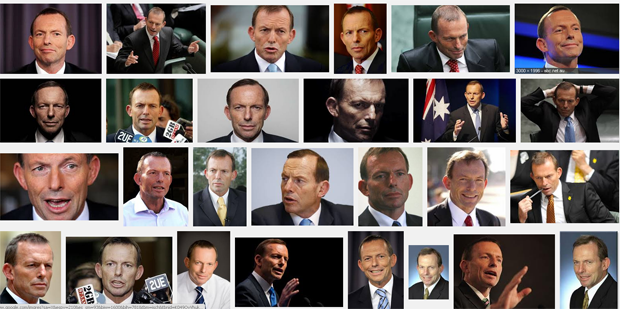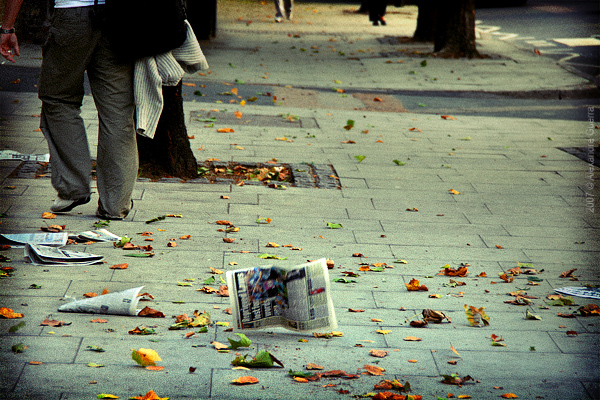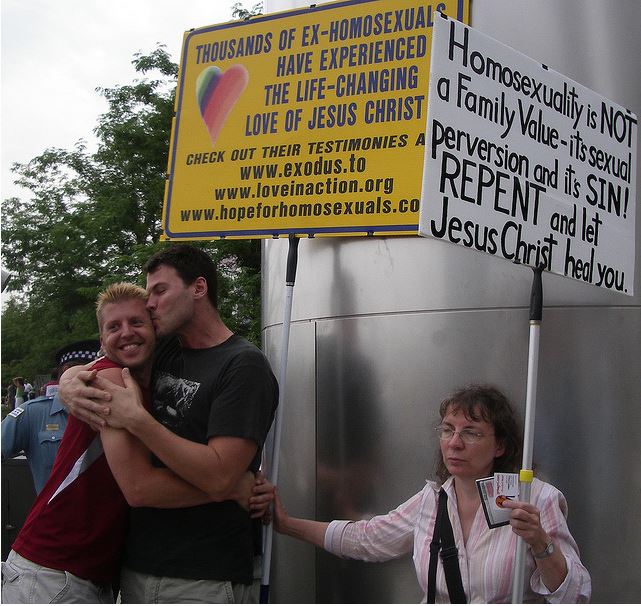7 Feb 2014 | Australia, News and features, Politics and Society

Australian prime minister Tony Abbott has accused the Australian Broadcasting Corporation of being unAustralian.
In a dust up over the reporting of spying revelations, the Australian Broadcasting Corporation has been called unAustralian by prime minister Tony Abbott, who has also called for a review of its funding.
The ABC, known affectionately as “Auntie”, has long been accused of left-wing bias by both conservative media and politicians and the prime minister is just the latest, saying in late January, “a lot of people feel at the moment that the ABC instinctively takes everyone’s side but Australia’s. I think it is a problem.”
The problems Abbott was referring to were revelations broadcast by ABC, prompted by documents released by former US National Security Agency contractor and whistleblower Edward Snowden, that Australia’s government had tapped the phones of the Indonesian prime minister Susilo Bambang Yudhoyono and his wife in 2009. Snowden was described by Abbott as a “traitor” and said the broadcaster was delighting in “advertising” what he had to say. Abbott accused the broadcaster of attacking the nation.
Though the phone tapping took place during the tenure of the previous Labor government, Abbott’s administration has been vocal that the reporting has badly damaged relations with Indonesia. At the same time, Abbott’s government has been turning back boats into Indonesian waters with no prior warning. This follows an ABC report that Australian navy personnel had abused asylum seekers in their care by forcing them to hold onto hot pipes that burned their hands. The allegations came from members of the Indonesian navy, but were not fully verified by ABC reporters.
An investigation by Media Watch, an ABC watchdog programme detailed varied journalistic abuses or stretches of the truth and found its own network had “overreached” on the allegations of abuse. The programme said the story should have been more adequately researched.
Tony Abbott later said he wanted the national broadcaster to apologise but would “leave it up to them”.
“My concern as a citizen of our country is to try to ensure our national broadcaster is accurate, is fair,” he continued.
Others in his party, such as communications minister Malcolm Turnbull, have not been so direct, noting the importance of freedom of press and a lack of self-censorship
The ABC, in a poll conducted by Essential Research found the taxpayer-funded broadcaster, is considered the country’s second most trusted institution after the Supreme Court. Further research conducted by the ABC found that 85 percent of people believe the broadcaster provides a valuable service.
None of this stops repeated claims of bias against the broadcaster, usually by conservative politicians and journalists. The supposed bias shown last election against Labor by News Limited papers has not been subjected to the same attacks by the Coalition. Other conservative commentators have noted the former government’s own attempts at censorship of the press.
This has come at the same as an”efficiency study” of the ABC and the Special Broadcasting Service, which also receives government funding, has been announced. Beginning this month, it will announce its findings in April and there is much speculation budgets will be cut. There has even been talk of privatising or scrapping the broadcaster, though communications minister Malcolm Turnbull has been keen to distance himself from the ideas.
This article was originally published on 7 February 2014 at indexoncensorship.org
7 Feb 2014 | Magazine, Magazine Editions, Volume 43.01 Spring 2014
[vc_row][vc_column width=”1/2″][vc_single_image image=”55789″ img_size=”full” onclick=”custom_link” link=”https://www.indexoncensorship.org/2014/03/carnage-clyde-wwii-cover/”][/vc_column][vc_column width=”1/2″][vc_column_text]
When the small Scottish shipbuilding town of Clydebank was flattened during one of the most destructive bombing raids of World War II, officials took extraordinary measures to suppress the details. John MacLeod reports for the spring 2014 issue of Index on Censorship magazine
On a moonlit evening on Thursday 13 March 1941, just after 9pm, the first of 236 German bombers converged on Clydeside. By 9.10pm, over the western suburbs of Glasgow, over Bowling and Dalnottar and – especially – over the crowded, densely housed and productive little town of Clydebank, the bombs had begun to fall. And the next night, it happened all over again.
Read the full article.[/vc_column_text][/vc_column][/vc_row][vc_row][vc_column width=”1/2″][vc_single_image image=”90659″ img_size=”full” onclick=”custom_link” link=”https://shop.exacteditions.com/gb/index-on-censorship”][/vc_column][vc_column width=”1/2″][vc_column_text]
Subscribe to Index on Censorship magazine on your Apple, Android or desktop device for just £17.99 a year. You’ll get access to the latest thought-provoking and award-winning issues of the magazine PLUS ten years of archived issues, including The war of the words.
Subscribe now.
[/vc_column_text][/vc_column][/vc_row]
6 Feb 2014 | Events, Media Freedom, Uncategorized

Join Index on Censorship for a lively discussion of the past and future of Britain’s free press.
2014 is set to be a pivotal year for UK media. The new defamation law will see its first tests, and the press and campaigners are rushing to establish a new regulator. Is the free press under threat? How much of a difference will new libel laws matter? Is the debate already out of date?
With Gill Phillips (Legal Director, Guardian Media Group), Gavin Millar QC (Doughty Street Chambers), Jonathan Heawood (Director of the Impress Project), Tom Phillips (Senior Writer, Buzzfeed UK), Padraig Reidy (Index on Censorship, Chair).
WHEN: Wednesday 19th February 2014, 18:30 – 20:00 inc. drinks
WHERE: Doughty St Chambers, 53-54 Doughty St, WC1N 2LS
TICKETS: RSVP here
@IndexEvents – #lifeafterleveson
Generously supported by

6 Feb 2014 | Events
 Join us on Feb 14 for a Google Hangout kick off our Drawing the Line programme of monthly youth events. Since its Valentines Day we’ll be in the mood to talk about love and free expression.
Join us on Feb 14 for a Google Hangout kick off our Drawing the Line programme of monthly youth events. Since its Valentines Day we’ll be in the mood to talk about love and free expression.
Love and -– more specifically -– same-sex love has been top of the international news agenda in the last few months with Nigeria passing a law banning homosexuality and the debates raging around Russia’s attitude to the LGBT community ahead of the Sochi 2014 Games. So with Valentine’s Day just round the corner, Index on Censorship wants to know from you-
Should we promote same-sex relationships?
We want to hear what you think! You can get involved now on Twitter and Facebook using the hashtag #LoveandFEX.
- Do you think we should have better education in schools on LGBT rights?
- Should we give these groups a platform?
- Do you even think this is a form of free expression?
At 12pm on Friday 14th February, a day dedicated to love, we will host a Google Hangout with Brian Pellot, Director of Global Strategy and Religious Freedom Editor at Religion New Service and Joel Bedos, International Coordinator for International Day Against Homophobia (IDAHO) to debate the issues.
To have your say on the day join the Hangout On Air here.




